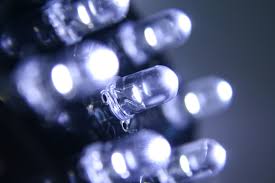
Breaking News
 Former White House Advisor: "Trump to Release $150 Trillion Endowment"
Former White House Advisor: "Trump to Release $150 Trillion Endowment"
 The Mayo Clinic just tried to pull a fast one on the Trump administration...
The Mayo Clinic just tried to pull a fast one on the Trump administration...
 'Cyborg 1.0': World's First Robocop Debuts With Facial Recognition And 360° Camera Visio
'Cyborg 1.0': World's First Robocop Debuts With Facial Recognition And 360° Camera Visio
 Dr. Aseem Malhotra Joins Alex Jones Live In-Studio! Top Medical Advisor To HHS Sec. RFK Jr. Gives...
Dr. Aseem Malhotra Joins Alex Jones Live In-Studio! Top Medical Advisor To HHS Sec. RFK Jr. Gives...
Top Tech News
 'Cyborg 1.0': World's First Robocop Debuts With Facial Recognition And 360° Camera Visio
'Cyborg 1.0': World's First Robocop Debuts With Facial Recognition And 360° Camera Visio
 The Immense Complexity of a Brain is Mapped in 3D for the First Time:
The Immense Complexity of a Brain is Mapped in 3D for the First Time:
 SpaceX, Palantir and Anduril Partnership Competing for the US Golden Dome Missile Defense Contracts
SpaceX, Palantir and Anduril Partnership Competing for the US Golden Dome Missile Defense Contracts
 US government announces it has achieved ability to 'manipulate space and time' with new tech
US government announces it has achieved ability to 'manipulate space and time' with new tech
 Scientists reach pivotal breakthrough in quest for limitless energy:
Scientists reach pivotal breakthrough in quest for limitless energy:
 Kawasaki CORLEO Walks Like a Robot, Rides Like a Bike!
Kawasaki CORLEO Walks Like a Robot, Rides Like a Bike!
 World's Smallest Pacemaker is Made for Newborns, Activated by Light, and Requires No Surgery
World's Smallest Pacemaker is Made for Newborns, Activated by Light, and Requires No Surgery
 Barrel-rotor flying car prototype begins flight testing
Barrel-rotor flying car prototype begins flight testing
 Coin-sized nuclear 3V battery with 50-year lifespan enters mass production
Coin-sized nuclear 3V battery with 50-year lifespan enters mass production
 BREAKTHROUGH Testing Soon for Starship's Point-to-Point Flights: The Future of Transportation
BREAKTHROUGH Testing Soon for Starship's Point-to-Point Flights: The Future of Transportation
LED Lighting Will Deliver Li-Fi Internet Data At 100 Times Fastest Wi-Fi

Connecting your smartphone to the web with just a lamp — that is the promise of Li-Fi, featuring Internet access 100 times faster than Wi-Fi with revolutionary wireless technology.
French start-up Oledcomm demonstrated the technology at the Mobile World Congress, the world's biggest mobile fair, in Barcelona. As soon as a smartphone was placed under an office lamp, it started playing a video.
The big advantage of Li-Fi, short for "light fidelity", is its lightning speed.
Laboratory tests have shown theoretical speeds of over 200 Gbps — fast enough to "download the equivalent of 23 DVDs in one second", the founder and head of Oledcomm, Suat Topsu, told AFP.
"Li-Fi allows speeds that are 100 times faster than Wi-Fi" which uses radio waves to transmit data, he added.
The technology uses the frequencies generated by LED bulbs — which flicker on and off imperceptibly thousands of times a second — to beam information through the air, leading it to be dubbed the "digital equivalent of Morse Code".
It started making its way out of laboratories in 2015 to be tested in everyday settings in France, a Li-Fi pioneer, such as a museums and shopping malls. It has also seen test runs in Belgium, Estonia and India.
Dutch medical equipment and lighting group Philips is reportedly interested in the technology and Apple may integrate it in its next smartphone, the iPhone7, due out at the end of the year, according to tech media.



